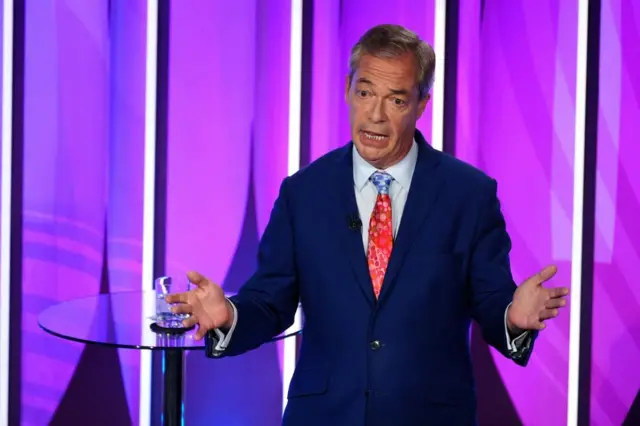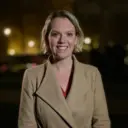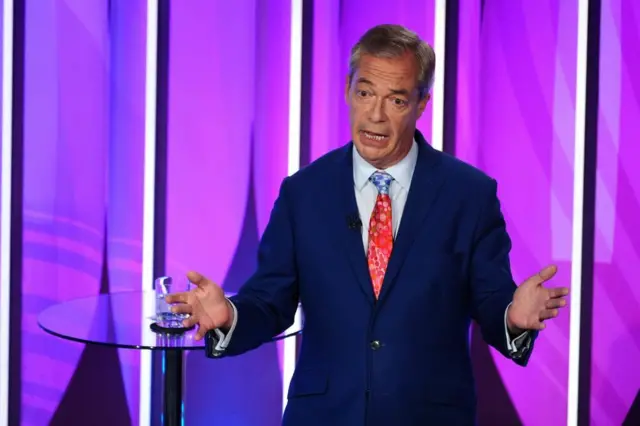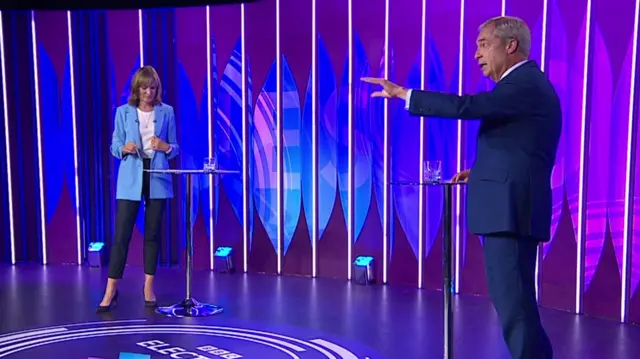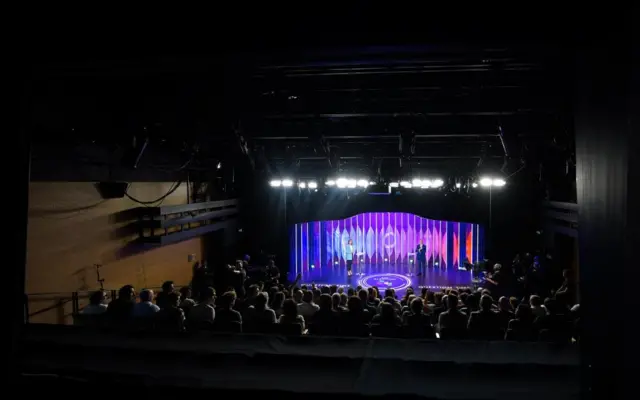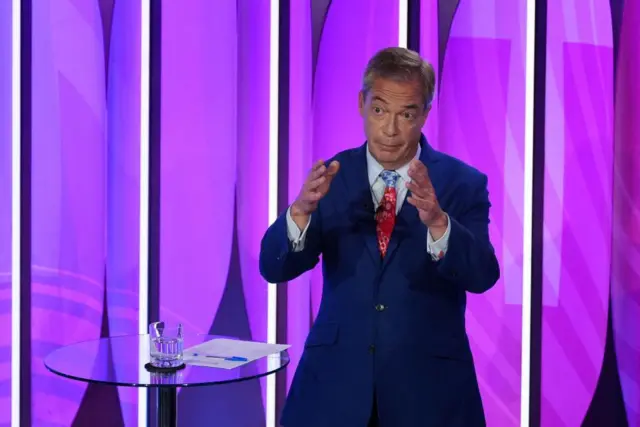Another day closer to 4 Julypublished at 22:59 BST 28 June 2024
 James Gregory
James Gregory
It's been another busy day of campaigning as polling day edges ever nearer. Before we leave you today, let's take a look at what the main parties were up to.
The big news story of the day was the continued reaction to comments made by a Reform UK party campaigner in Nigel Farage's Clacton seat (full list of candidates here) which were exposed in a Channel 4 investigation.
Throughout the course of the day, Farage insisted the man at the centre of the investigation was an actor and it had been a "set-up". Channel 4 says it stands by its "rigorous and and impartial journalism".
He continued to defend himself during a BBC Question Time special. Green co-leader Adrian Ramsay also appeared on that show, and was questioned on transport infrastructure, immigration and comments made by some of his candidates.
Earlier today, Prime Minister Rishi Sunak condemned a racist term used about him by the campaigner, saying: "It hurts and it makes me angry."
In the last BBC Panorama interview with party leaders, Ed Davey defended the Lib Dems' approach to housebuilding.
Meanwhile, Labour leader Keir Starmer was on various BBC outlets this morning. He told BBC Breakfast his priority was to stabilise the economy.
The SNP's John Swinney appeared on the programme minutes earlier, defending his party's record in Holyrood and maintaining "this is not a moment for spending cuts".
We're now entering the last weekend of the campaign and tomorrow the main parties will be marking Armed Forces Day.

